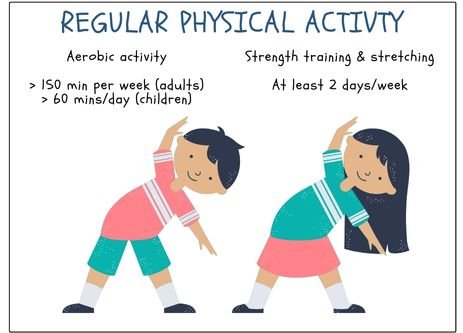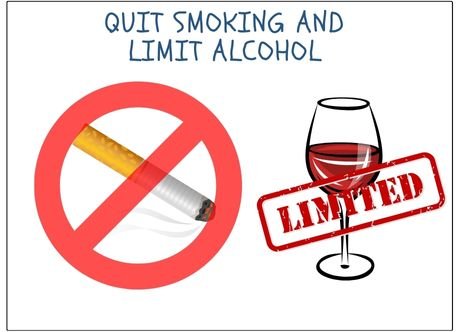Habits for long-lasting health
In this first post I'd like to discuss the power of nutrition for long-term health, and delve into other habits that can contribute to increased healthspan (i.e. the number of years that someone lives or can expect to live in reasonably good health).
After decades of progress, recent life expectancy estimates in the U.S. saw a decline of almost three years. Half of the excess deaths are attributed to the COVID pandemic, with heart and chronic liver diseases and unintended injuries explaining most of the remaining half (1). Several trends are not encouraging in terms of reversing this decline, including the continued growth of ultra processed food consumption, now representing a shocking 57% of caloric intake in adults and 67% in children (2), with the concomitant reduction in the consumption of whole foods. Higher consumption of ultra processed foods has been linked to higher risk of mortality (3). In addition, obesity rates continue to increase decade after decade, with 2017-18 data indicating that 82% of U.S. adults were overweight or obese, while the prevalence in youth was 42% (4). People who are overweight or obese are at an increased risk of many serious conditions, including hypertension, high cholesterol, diabetes and heart disease (5).
My work with patients across the age and health spectrum over the past years has driven me to become a strong advocate for disease prevention, a work that should start very early in life. This is because chronic conditions, despite affecting most people later in life, start developing in early childhood. We also know that obesity, once established, is hard to reverse in a sustainable way.
Unfortunately, our food production system and government policies are not conducive to healthy lifestyles. For this reason, the focus of those advocating for change tends to be on promoting public health policies and a regulatory system that help prevent obesity and encourage healthy behaviors in the first place. Despite our challenging environment, there are things we can still try to do at the individual level, while we continue to advocate for meaningful change as a society, and that is what this post is about. You won’t see anything here you haven’t heard before, no revolutionary ideas, but I’m hoping it will inspire you to make small and meaningful changes in your life and the lives of those around you.
So here are five recommendations to begin your journey towards long-lasting health:
1) Follow the healthy meal method
Fill half of your 9-inch main plate with non-starchy vegetables like leafy greens, tomatoes, carrots, broccoli, onions, cucumbers, zucchini, eggplant and green beans. Prepare them in different ways to increase their appeal to picky eaters, and include as much variety as you can throughout the week.
Fill a quarter of your plate with healthy protein. Choose plant based as much as possible, including beans, lentils, tofu, etc., and limit red and processed meats like bacon, hot dogs and deli meats.
Fill a quarter of your plate with healthy carbohydrates, choosing whole grains like whole wheat products and quinoa, and healthy starchy vegetables like sweet potatoes and peas.
Include a serving of fruit, consuming it preferably at the end of your meal. Try to consume as much variety as you can throughout the week.
Consume healthy fats in moderation, including avocado, nuts, seeds and vegetable oils, limiting saturated fats (found in animal products like meat and dairy and tropical oils like palm and coconut oil) and avoiding trans fats, which could be present in fried and processed foods.
Choose to drink water and avoid sugary or artificially sweetened drinks, making sure to consume at least 8 cups of fluids per day (adults). Seltzers or water flavored with fruits, vegetables and herbs can be great alternatives.
In addition, ensure you are consuming the recommended amounts of calcium and iron and that your vitamin D levels are adequate. If you eat a mostly plant based diet, make sure to supplement with vitamin B12. Finally, try to reduce your sodium intake by choosing to eat mostly home prepared meals and adding less salt when you cook.
All of the above recommendations are given to those dealing with most of the common health conditions seen at a Registered Dietitian’s office, including prediabetes and diabetes, fatty liver disease, hypertension, high cholesterol, high triglycerides and obesity. But imagine if we could reduce the burden of these diseases by preventing them in the first place?
While healthy eating is a pillar of longevity and good health, other aspects of our lives are equally important, so I want to briefly mention them here.
2) Engage in regular physical activity
Aim for at least 150 minutes per week for adults and at least 60 minutes per day for children. Include muscle strengthening and stretching activities at least twice a week. Find ways to move around as much as possible throughout the day.
3) Avoid smoking and limit alcohol intake
Smoking impacts nearly every body system and reduces longevity and health. In particular, smoking increases the risk of heart disease and stroke by two to four times, lung cancer by 25 times and diabetes by 30-40% (6). And while it was previously believed that moderate alcohol intake is protective for health, there is currently agreement that the more we limit our alcohol intake, the lower the risks for our health (7).
4) Sleep
Many of us underestimate the importance of sleep for long term health. Sleep plays a role in removing toxins from our brains, boosting immune function and affecting our metabolism in ways that help prevent chronic conditions. Most adults need seven to nine hours of sleep, while teens and school-aged children require at least nine and a half hours per night. While sleep duration is very important, we should also focus on quality. Some of the ways in which we can improve sleep quality include regular exercise, avoiding screen use close to bedtime, and limiting caffeine and alcohol intake (8).
5) Maintaining active social connections
Loneliness is associated with poor health outcomes, with healthy social connections increasing long-term survival by 50% (9).
Working towards these goals could be challenging, especially given our busy lifestyles and multiple life demands. For some, it can take just some encouragement and guidance, for others it might require the support of a more intense counseling program. But ultimately all of us can take steps in the direction of better health. I will expand on these topics in future posts, including tips to achieve long lasting habit changes, so stay tuned.
Make today a wholesome one!
Adriana







